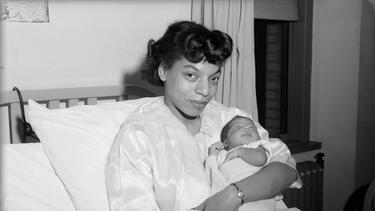Black Lives Matter
Teachers See Misbehavior from Black Students as More Blameworthy
In order to isolate the role of race in teacher-student interactions, Prof. Jayanti Owens created videos using actors to depict misbehavior. She found that teachers are more likely to describe an incident with “blaming” language if the actor playing the misbehaving students is Black.

What Activists Want from Allies
In a new study, Yale SOM’s Michael Kraus and PhD graduate Jun Won Park found that activists working for social change value allies who are trustworthy and willing to defer to activists’ leadership.
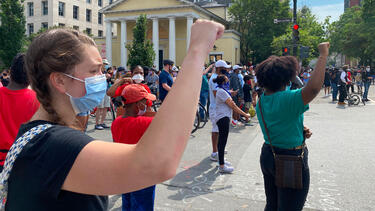
Can Bias Be Eliminated from Algorithms?
The predictive software used to automate decision-making often discriminates against disadvantaged groups. A new approach devised by Soheil Ghili at Yale SOM and his colleagues could significantly reduce bias while still giving accurate results.

Numbers, Not Narratives, Remedy Misperceptions of the Racial Wealth Gap
A series of studies co-authored by Yale SOM’s Michael Kraus have shown that Americans vastly underestimate the wealth gap facing Black Americans. The latest research shows that detailed data is more effective than personal narratives in improving their understanding.

Black and Latinx Conservatives ‘Upshift’ Competence to White Audiences
A new study by Yale SOM’s Cydney Dupree finds that when politically conservative Black and Latinx Americans speak in mostly White settings, they are more likely than their liberal counterparts to adopt language associated with power, status, and ability.

The Fight for Healthcare Equity after COVID-19
Dr. Cecelia Calhoun ’21, a Yale physician with a focus on sickle cell disease, and Yale SOM’s Dr. Howard Forman discuss the gargantuan but critical challenge of addressing the impact of systemic racism on the health of Black Americans.
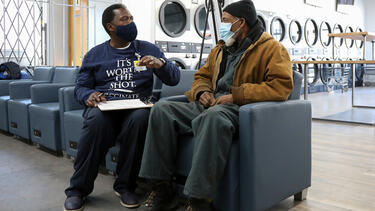
How George Floyd’s Murder Galvanized Corporate America
A year after the killing sparked a wave of protest, Yale SOM leadership expert Jeffrey Sonnenfeld sees signs of a lasting change in corporate attitudes about racial justice.
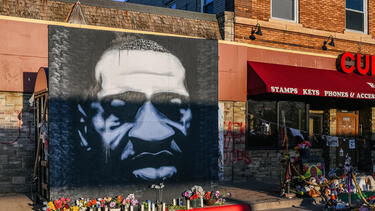
Bringing Private-Sector Values to the Public Sector—and Vice Versa
Professor Teresa Chahine talks with Roderick Bremby, who led a dramatic turnaround of Connecticut's Supplemental Nutrition Assistance Program. Today, he is an executive at Salesforce, which has provided contact tracing and vaccine management during the COVID-19 pandemic.
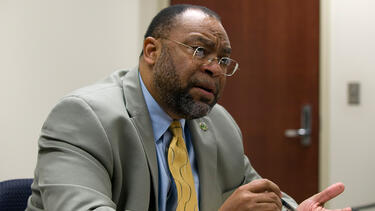
Video: Police-Citizen Trust Is a Path out of the Crisis
The murder of George Floyd and other high-profile incidents of police violence are part of a larger crisis of trust between U.S. police forces and the communities they protect. Yale SOM’s Rodrigo Canales says that the solution is for police organizations to think of their mission not simply as reducing crime but as building trust with citizens.

Building Blocks for Change
We talked to Judith Scimone ’00, chief talent officer at MetLife, about her path into workforce management and what she has learned in a year shaped by the COVID-19 pandemic and the Black Lives Matter movement.

Study Finds Hospital Desegregation Didn’t Improve Mortality Rate for Black Infants
Efforts in the late 1960s to desegregate hospitals in the American South did not significantly contribute to improvements in the Black infant mortality rate, finds a new study co-authored by Dean Kerwin Charles.
